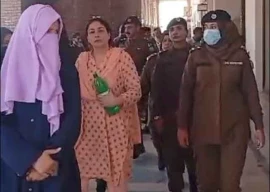
Pakistan and Iran are likely to make some headway in efforts to end deadlock over wheat import by the latter under a barter trade arrangement, during talks being held in Tehran.
A high-level delegation, headed by Food Security and Research Minister Mir Israrullah Zehri, rushed to Tehran on Sunday to resolve the issues related to quality and pricing, which became a major stumbling block in pressing ahead with plans to initiate barter trade, a senior ministry official said.
The price of fertiliser, which had to be imported from Iran, will also come under discussion during the talks.
In February this year, then water and power minister Syed Naveed Qamar and visiting Iranian Deputy Commerce Minister Abbas Ghohadi had agreed that Tehran would import one million tons of wheat as well as 200,000 tons of rice. They also decided that wheat imports would start in two months.
Pakistan was planning to export one million tons of wheat from a surplus of about 1.2 million tons. It proposed a price of $275 per ton.
In return, Pakistan had to purchase iron ore from Iran for state-owned Pakistan Steel Mills, a financially troubled industrial giant because of acute shortage of raw material and other problems. Pakistan also agreed to import fertiliser to meet domestic demand and arrest rising prices.
According to the ministry official, negotiations between the two countries reached a stalemate when Iran raised concerns over the quality of wheat.
“Pakistan’s wheat has 0.3% ratio of karnal bunt (a fungal disease) whereas 1% is the internationally acceptable level,” the official pointed out and said Tehran wanted wheat having zero per cent karnal bunt. However, he stressed that even 1% was not harmful to human health. Another hurdle was the cash payment sought by Iran for urea supply.
“Owing to delay in barter trade, wheat prices have dropped in the country and farmers are forced to sell at Rs800 to Rs850 per 40 kg, which is much lower than the official support price of Rs1,050,” the official said, adding if Pakistan decided to export wheat to the world market, prices in the country would jump.
“In the Tehran talks that will continue until Wednesday, if the two countries fail to reach an understanding on barter trade, Pakistan will allow export of wheat to the world market where prices are going up,” he said.
Published in The Express Tribune, July 17th, 2012.
COMMENTS (2)
Comments are moderated and generally will be posted if they are on-topic and not abusive.
For more information, please see our Comments FAQ










































India and Pakistan allways hurts its own peoples no matter what unlike others in the world..